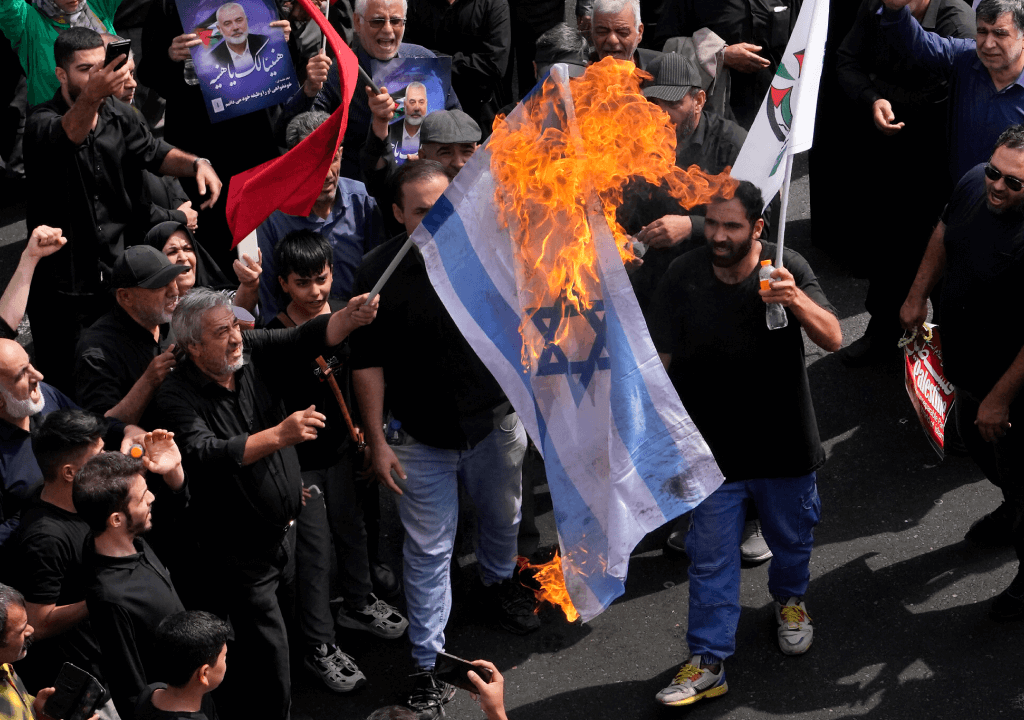Iran is deeply humiliated by Israel’s killing of the Hamas chief in Tehran. Although it was anticipated that Israel might target him, the attack did not occur while he was in Gaza or Qatar. Instead, Israel chose to act when he arrived in Iran for the new president’s inauguration. As a major player in the Islamic world and the only country actively opposing Israel, Iran views this as a significant humiliation. This incident is not unprecedented; Israel has previously targeted several high-ranking Iranian officials, and some experts even speculate that Ebrahim Raisi might be a target. Iran’s regime feels compelled to retaliate to maintain its strong image domestically and its status as a defender of Islam globally. While previous responses have involved ceremonial missile launches, such a response may no longer suffice. But are they capable?
Iran is undeniably a superpower in the Middle East, boasting a formidable military force. As of 2024, the Iranian Armed Forces are the second-largest in the region, surpassed only by the Egyptian Armed Forces in terms of active troops. Iran’s military consists of approximately 425,000 active-duty personnel and an additional 100,000 reserves and trained personnel available when needed. These numbers do not include the Law Enforcement Command or the Basij. Despite its numerical advantage over Israel, Iran faces more challenges than opportunities.
Most of Iran’s imported weapons are American systems acquired during the shah’s regime before the Islamic Revolution. Following international sanctions, Iran initiated a strong domestic rearmament program, resulting in an increasingly indigenous military inventory. By the 2000s, Iran had become an exporter of arms, although the effectiveness of its domestically manufactured items remains. The country has invested significantly in an ambitious ballistic and cruise missile program to enhance its mid-range strike capability, though updates on its progress are scarce. Additionally, Iran produces a variety of arms and munitions, including tanks, armored vehicles, drones, and an array of naval assets and aerial defense systems, which could be crucial in a conflict.
Iran has purchased some munitions from Russia in addition to its indigenous weapons. However, since Russia is currently at war, it cannot meet Iran’s demand. It is uncertain whether other superpowers in Asia, such as China and India, will supply munitions to Iran. Supplying munitions would likely invite U.S. sanctions, so Islamic countries will probably refrain from doing so.
The biggest challenge for Iran is that it does not share a border with Israel, so the size of its army does not provide an advantage. War through waterways is possible, but on all the routes through land and sea, U.S. allies are present and will likely stop them. Through the air, missiles are available, and they have been launched at Israel before, but Israel successfully blocked them. The only way that might work for Iran now is a joint attack with its allies in the region. However, there are doubts that these countries will cooperate with Iran now because they would suffer more than Iran if they intervened. However, it is certain that militant groups in Syria, Lebanon, and Yemen will fight alongside Iran, and a joint attack with them is the only possibility for Iran. Iran is trying its best to partner with Islamic countries.
Iran has called in foreign ambassadors to Tehran to assert its moral duty to hold Israel accountable for what it views as provocations and violations of international law following the assassination of Ismail Haniyeh. Tehran has also requested an emergency meeting of the Organization of Islamic Cooperation on Wednesday to seek backing from Arab states for potential retaliatory measures against Israel. Many Gulf leaders have expressed their condemnation of Israel’s actions but are advising Iran to show restraint.
Sergei Shoigu, Russia’s Security Council Secretary, arrived in Tehran on Monday for talks with Iranian leaders, including President Masoud Pezeshkian. While discussions are advancing quickly, it remains uncertain how many countries will support Iran in its war against Israel.
Experts suggest that Iran is striving to maintain its image. To potentially promote peace, the U.S. might indirectly assist Iran by allowing a token attack, enabling Iran to claim retaliation. Iran could then shift blame to other Gulf states. At this stage, a full-scale war seems unlikely, as Iran recognizes the significant challenges and potential internal problems that such a conflict would create. Although missile strikes or proxy attacks might continue, the likelihood of a direct confrontation between Iran and Israel remains low.








